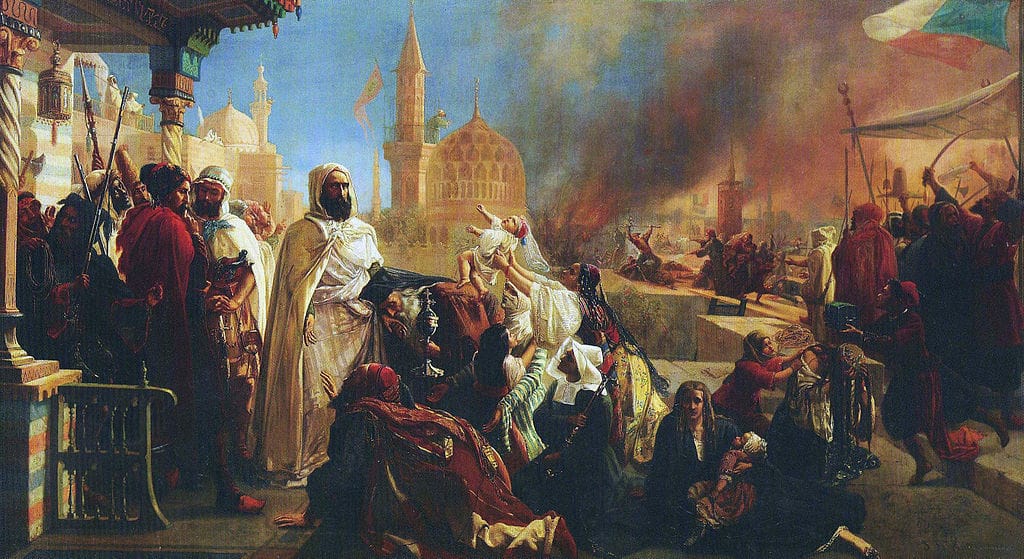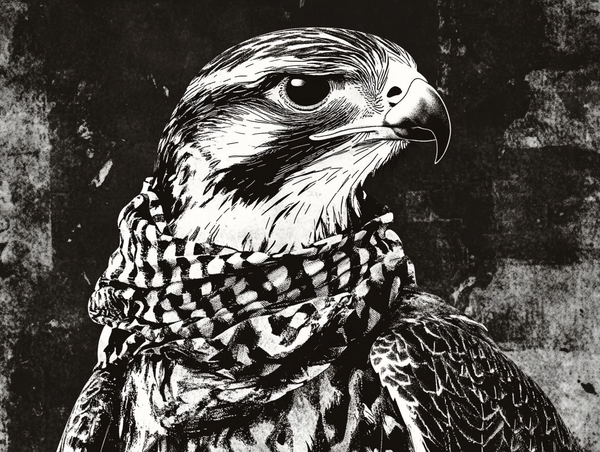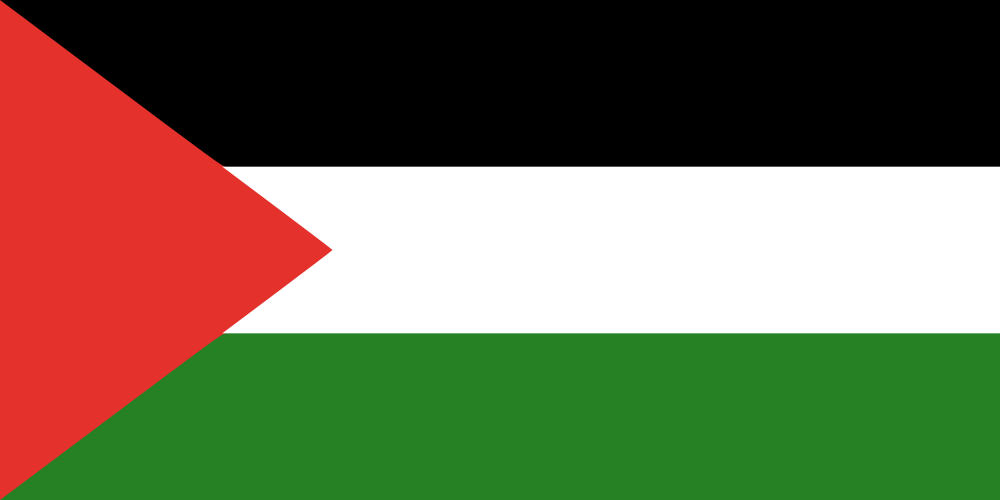Emir Abdelkader: The Hero Who United Faiths to Save Lives in a Time of Turmoil

Emir Abd-el-Kader (1808–1883) is one of the most significant figures in Algerian history and the broader Arab world, but his legacy is often overlooked outside the MENA region. He was not just a military leader, but also a scholar, a humanitarian, and a symbol of resistance against colonialism. His life’s work, which blended military prowess, intellectual achievements, and a deep commitment to peace, offers a unique example of Arab leadership in the 19th century.
Early Life and Rise to Power
Abd-el-Kader was born in 1808 in the region of Mouzaïa, near Algiers, into a prominent family of scholars and religious leaders. His father, Mahieddine, was a well-respected religious scholar and a member of the Kadiriyya Sufi order, which greatly influenced Abd-el-Kader’s spiritual development. From a young age, he was trained in Islamic scholarship and military strategy, gaining a reputation for his intelligence, piety, and leadership skills.
In the 1830s, when France began its invasion of Algeria, Abd-el-Kader emerged as the leader of the resistance against the French colonial forces. The French had invaded Algeria in 1830, and by the mid-1830s, they had consolidated their control over much of the country. Abd-el-Kader, however, was able to unite various Algerian tribes and rally them against the French forces. His leadership was marked by remarkable strategic insight and the ability to inspire loyalty among his followers.
Resistance Against the French
Abd-el-Kader led a determined and protracted resistance to French rule, successfully organizing and leading raids against French garrisons and disrupting their attempts to establish control in Algeria. His ability to organize guerrilla warfare tactics made him a formidable adversary. He was known for his tactical genius, his ability to maintain supply lines in the hostile Algerian terrain, and his capacity to unite diverse groups under the banner of resistance.
In 1847, after years of conflict, Abd-el-Kader was eventually captured by the French after a betrayal by a faction of his supporters. He was offered a peaceful settlement in return for his surrender, but after years of bloody conflict, Abd-el-Kader’s surrender was seen as a tragic moment for Algerian resistance. He was imprisoned in France for several years but was eventually released in 1852 after a series of diplomatic negotiations. Abd-el-Kader’s imprisonment was marked by a complex relationship with the French, as many French leaders, including Napoleon III, admired his honor and military capabilities.
Abd-el-Kader’s Exile and Humanitarian Legacy
After his release from French captivity, Abd-el-Kader lived in exile in Syria. He initially took refuge in Istanbul and later settled in Damascus, where he became a significant political and religious figure in the Ottoman Empire. It was during his time in Syria that Abd-el-Kader’s reputation as a humanitarian and defender of human rights solidified.
In 1860, a wave of sectarian violence broke out in Damascus between the Druze and Christians, leading to the massacre of thousands of Christians. Abd-el-Kader, despite being a Muslim and an outsider, intervened to protect the Christian population. He took shelter in his own house, providing protection to hundreds of Christians, including priests, monks, and civilians, from the violent mobs. Abd-el-Kader’s actions in Damascus were not only a direct response to the violence, but they also symbolized his belief in religious tolerance and coexistence.
He convinced Muslim leaders to protect Christians and even used his own personal influence to negotiate with Ottoman authorities to halt the violence. Abd-el-Kader’s efforts were pivotal in saving the lives of many Christians and in preventing the situation from escalating further. His actions in Damascus earned him praise from both the Christian and Muslim communities, and the French, who had been his enemies during the Algerian resistance, even recognized his role as a protector of the oppressed.
Abd-el-Kader’s Role as an Intellectual and Arab Nationalist
Abd-el-Kader was not only a military leader but also a learned scholar and an intellectual. His education in Islamic law, philosophy, and theology shaped his views on governance, justice, and society. He wrote numerous works on topics ranging from Islamic ethics to Sufi philosophy. His most notable intellectual contribution is his "Treatise on the Principles of Government," in which he outlined his vision for an ideal Muslim state based on principles of justice, equity, and tolerance.
Abd-el-Kader’s writings emphasized the importance of virtue and the ethical obligations of rulers toward their subjects. His philosophical outlook was influenced by his Sufi beliefs, which promoted the idea of spiritual development and moral conduct as essential to leadership. His political vision was ahead of its time in its call for unity and social harmony in a region marked by diverse religious and ethnic groups.
As an Arab nationalist, Abd-el-Kader believed in the unity of the Arab world. He saw colonialism as a common enemy that sought to divide the Arab and Muslim worlds, and he advocated for solidarity among Arab nations. He also promoted the idea of Arab identity and was a strong proponent of Arab self-determination and sovereignty. His resistance to French colonialism in Algeria can be seen as an early expression of Arab nationalism, as he sought to defend his country’s independence and preserve its cultural and religious heritage.
Abd-el-Kader’s Impact on Islam and Arabism
Abd-el-Kader’s influence extended far beyond his military campaigns. His actions in Syria, particularly during the 1860 Damascus massacre, made him a revered figure in both the Arab and Muslim worlds. His role in defending Christians, despite the sectarian differences between Muslims and Christians, was a significant moment in the history of interfaith relations in the region. Abd-el-Kader’s commitment to religious tolerance and peace set him apart from many other figures of his time, and his ability to bridge religious divides was a testament to his leadership and vision.
In addition to his role as a military and religious leader, Abd-el-Kader’s contributions to Arabism were influential. He was one of the early advocates of Arab unity and independence, and his resistance against French colonization was a precursor to the broader movements for Arab nationalism that emerged in the 20th century. His vision of an Arab world free from colonial domination inspired later generations of Arab leaders and intellectuals.
Abd-el-Kader's Legacy
Today, Emir Abd-el-Kader’s legacy is celebrated in Algeria, Syria, and across the Arab world. He is regarded as a national hero in Algeria, where he is remembered for his resistance to French colonialism and his role in shaping the country's struggle for independence. In Syria, he is revered for his humanitarian actions, particularly during the 1860 Damascus massacres.
Though he is not as widely known in the Western world, Abd-el-Kader’s life is a powerful testament to the strength of the human spirit, the importance of leadership based on ethical principles, and the enduring power of peace and unity. He embodies the values of Arab nationalism, religious tolerance, and resistance to oppression, making him a significant, though often forgotten, figure in history. His contributions to the Arab world, both as a military leader and a humanitarian, mark him as one of the last great Arab leaders before the onset of modern colonial and post-colonial struggles in the Middle East.
In sum, Emir Abd-el-Kader was not only a military leader but also a moral and intellectual beacon for his time, embodying Arabism and religious tolerance in a period of great conflict. His legacy is one of unity, compassion, and resistance to injustice, making him a remarkable figure in the history of both Islam and Arab nationalism.
The 1860 Damascus Massacre was a tragic event in the history of the Middle East, marked by sectarian violence between the Druze and Christians in Syria. It occurred during a period of rising tensions, religious and ethnic divisions, and political instability in the Ottoman Empire, which controlled Syria at the time. The massacre is notable for its scale and for the role of Emir Abd-el-Kader in intervening to protect the Christian population.
Context of the 1860 Damascus Massacre
In the mid-19th century, the Ottoman Empire, which ruled much of the Arab world, was facing internal unrest and external pressures. In the region of Syria, there was growing sectarian tension between different religious groups, particularly between the Druze, a minority Shia sect, and the Christian populations, including Maronites, Greeks, and others. These tensions were exacerbated by political rivalries and the weakening of Ottoman central authority.
The immediate catalyst for the 1860 massacres was a series of clashes between Druze and Christians in the Mount Lebanon region. A political dispute involving local leaders escalated, leading to violence between the two communities. The situation was inflamed by external factors, including European powers' interventions in Lebanon, which were often based on their religious affiliations—Christian-majority European countries such as France supported the Christian communities in the region, while the Druze were often backed by the Ottomans.
The Outbreak of Violence in Damascus
In June 1860, violence erupted in the city of Damascus, which was a major center of trade, culture, and politics in the region. A large number of Christian residents in Damascus, who had been living in the city for centuries, were targeted by angry mobs incited by the rising sectarian tensions. It is believed that the violence began after the Druze had been provoked by the earlier events in Mount Lebanon, leading them to retaliate against the Christian community in Damascus.
The violence quickly escalated. Over the course of several days, thousands of Christians were killed. Churches were looted and destroyed, and many Christians were forcibly converted to Islam. Christian women and children were abducted, and many were killed in brutal and horrific ways. Christian neighborhoods were set ablaze, and the Christian population was effectively driven out of large parts of the city.
Abd-el-Kader’s Role in the Massacre
During the violence in Damascus, Emir Abd-el-Kader—who had been exiled from Algeria and was living in Damascus at the time—acted heroically to protect the Christian population. Abd-el-Kader, despite being a Muslim leader, took decisive steps to prevent further bloodshed.
He was deeply alarmed by the unfolding massacre and, understanding the gravity of the situation, made an extraordinary decision to intervene. Abd-el-Kader offered sanctuary to Christians, sheltering hundreds of them in his own home and protecting them from the mobs outside. He took it upon himself to negotiate with the Ottoman authorities and even threatened to withdraw his own support if the violence was not stopped.
His actions went beyond merely offering shelter. Abd-el-Kader's influence with both the Ottoman authorities and local Muslim leaders helped to prevent the violence from spreading further. He convinced other Muslim leaders to offer protection to Christians in their own homes, and his intervention allowed many Christians to escape the violence. At great personal risk, he remained steadfast in his defense of the Christian community, earning the admiration of both Muslims and Christians for his courage and commitment to peace.
Aftermath and Legacy
The massacre eventually subsided, but the destruction left behind was immense. It is estimated that several thousand Christians were killed during the events in Damascus and the surrounding areas. The aftermath of the massacre led to the displacement of many Christians, and it exacerbated sectarian tensions in the region.
Despite the widespread violence, Emir Abd-el-Kader's actions were seen as a beacon of hope in an otherwise dark period. His efforts to protect the Christian community were recognized by both the European powers and the Ottoman authorities. For his bravery and compassion, he received praise from many Christian leaders, including the French, who saw him as a hero for his defense of Christian lives. Abd-el-Kader’s humanitarian intervention became a defining moment in his life, earning him a place as one of the great figures of Arab and Islamic history.
Significance of the 1860 Damascus Massacre
The 1860 Damascus Massacre is significant in multiple ways:
- Sectarian Tensions: It highlights the deep-rooted sectarian divisions in the Ottoman Empire, particularly between Muslims and Christians, but also between the Druze and other groups. These tensions would continue to shape the region’s politics and interfaith relationships in the years to come.
- Colonial Influence: The massacre and the events leading up to it were heavily influenced by the interference of European powers, particularly France, who were keen to support Christian minorities in the region as part of their broader geopolitical strategy.
- Abd-el-Kader's Humanitarian Legacy: Abd-el-Kader’s role in protecting the Christians of Damascus has become a symbol of interfaith solidarity and compassion in times of crisis. It shows his capacity to transcend sectarian boundaries and act as a force for good, making him a hero not only to Algerians but to many others across the Muslim and Christian worlds.
- The Role of Leadership: The massacre underscores the importance of leadership in times of crisis. Abd-el-Kader’s leadership, based on principles of justice, ethics, and interfaith cooperation, stands in stark contrast to the violent and destructive forces at play during the massacre. His example continues to resonate as a model of moral and civic leadership.
In conclusion, the 1860 Damascus Massacre was a tragic and harrowing event, but it also stands as a powerful moment of moral clarity and extraordinary bravery, exemplified by the actions of Emir Abd-el-Kader. In the face of rampant sectarian violence, his courageous intervention not only saved countless lives but also serves as a profound testament to the possibility of cross-sectarian solidarity, even in the darkest and most divided moments of history. Abd-el-Kader’s unwavering commitment to peace, justice, and human dignity transcended the religious and ethnic divides of his time, leaving a legacy that continues to inspire and resonate across the Arab world and beyond. His example reminds us that true leadership is rooted in compassion and the courage to do what is right, even when it seems most difficult.
Written By Dhamiri
December 2024



